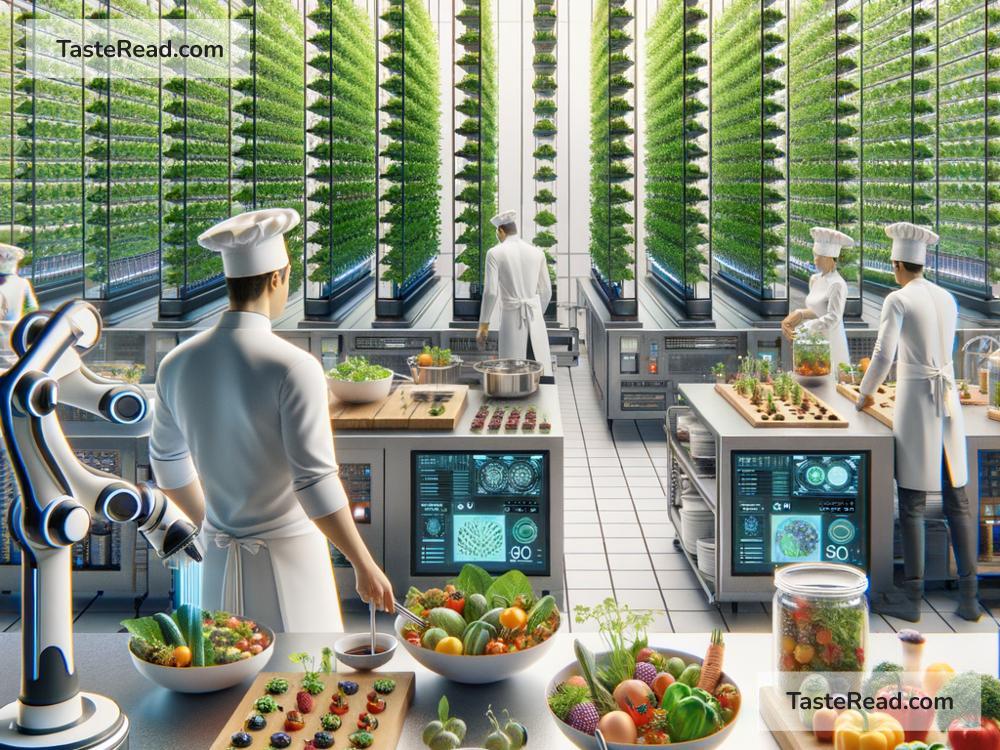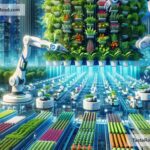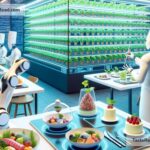The Future of Food: Transformative Global Collaboration for a Healthier Planet
The food we eat plays an essential role in our lives. It fuels our bodies, shapes cultures, and connects us as families and communities. But as the world grows larger—with more people and increasing challenges like climate change, resource shortages, and economic shifts—feeding everyone sustainably is becoming more difficult. To secure the future of food, we need a new mindset: one that focuses on innovation, equity, and collaboration across borders.
In this blog, we’ll explore how the future of food is changing and how global teamwork can pave the way to a healthier world for everyone.
The Current Challenges in Food Systems
Before we look forward, it’s important to understand the problems we face today. The global food system—how food is grown, processed, transported, and consumed—is far from perfect:
-
Hunger and Malnutrition: Despite scientific advancements, almost 800 million people worldwide don’t have enough food to eat, and many suffer from malnutrition. Others, especially in wealthy countries, struggle with obesity and unhealthy diets.
-
Environmental Impact: Agriculture accounts for a significant portion of greenhouse gas emissions. Deforestation, water overuse, and soil degradation caused by farming are also harming our planet.
-
Food Waste: Nearly one-third of all food produced across the globe is wasted. That’s enough to feed billions of people. Food waste occurs everywhere—from farms to supermarkets to homes.
-
Economic Inequality: Small-scale farmers—who grow much of the world’s food—often live in poverty. They face unfair pricing, lack access to advanced tools, and struggle to compete with large food corporations.
These challenges show us that what worked in the past may not work in the future. To ensure food security for all, we must rethink how food is produced, distributed, and consumed. Here’s where partnership and innovative ideas come in.
The Future of Food: Innovation and Collaboration
The path to feeding the world sustainably lies in science, technology, and collaboration. Here are some exciting developments shaping the future of food:
1. Sustainable Farming Methods
Farmers are finding new ways to grow food without harming the environment. For example, precision agriculture uses technology like drones and sensors to monitor crops. This helps farmers apply water, fertilizer, and pesticides only where needed, reducing waste and pollution.
Regenerative farming is another solution. It focuses on improving soil health, planting diverse crops, and reducing chemical use. Healthier soil traps carbon dioxide, which helps fight climate change.
2. Alternative Proteins
Meat production requires vast amounts of land, water, and feed, and it contributes heavily to greenhouse gas emissions. To reduce meat consumption, scientists are working on plant-based alternatives and lab-grown meats. These protein sources offer similar taste and nutrition without the environmental toll.
For example, companies are now making burgers from ingredients like peas, beans, and mushrooms. Lab-grown meat is also gaining attention—it’s real meat grown from animal cells, without needing to raise or slaughter animals.
3. Vertical Farming
Vertical farming is a revolutionary concept where crops are grown indoors, stacked in layers, using artificial light and controlled environments. These farms can thrive in urban areas, need less water, and avoid pesticides altogether. With vertical farming, fresh produce can be grown year-round, even in places with poor soil or harsh climates.
4. Food Technology
Advances in data science and artificial intelligence are changing the way we grow, distribute, and prepare food. For example, apps and software are helping farmers predict weather patterns, manage their resources smartly, and get better market prices. In restaurants, robots are being trained to cook creative meals and reduce cooking waste.
A Global Effort to Feed the World
No single country or organization can fix these challenges alone. Solving global food problems requires collaboration among nations, companies, farmers, scientists, and consumers. Here’s how working together can make a difference:
1. Sharing Knowledge Across Borders
Countries and scientists can share ideas and technologies to improve farming practices worldwide. For example, drought-resistant crops developed in one region could be taught and used in another affected by water shortages. Partnerships like these allow everyone to benefit from innovation.
2. Supporting Small Farmers
Small-scale farmers grow a large portion of the world’s food, especially in poorer countries. But many struggle with access to tools, funding, and markets. By forming global coalitions, governments and organizations can invest in small farmers, provide fair prices, and trade responsibly.
3. Reducing Food Waste
International efforts can help reduce food waste. Companies, governments, and individuals can work together to improve food storage technology, design better distribution systems, and educate people about portion sizes and composting.
4. Tackling Climate Change Together
Climate change doesn’t respect borders—it affects food production everywhere. Global collaboration to fight climate change is critical for the future of agriculture. Green energy, better farming techniques, and reducing emissions can protect food supplies for future generations.
What Can We Do as Individuals?
While governments, companies, and scientists have a big role to play, individuals can also make meaningful changes. Choosing local produce, reducing food waste, switching to plant-based meals, and supporting ethical brands are all small steps that collectively make a big impact.
Conclusion
The future of food is filled with challenges—but also endless opportunities. By embracing innovation and global collaboration, we can create a food system that is kinder to people and the planet. Feeding the world sustainably isn’t just a problem to solve; it’s a vision to achieve together. With creativity, compassion, and commitment, we can ensure everyone has access to healthy, delicious food—today and in the years to come.


